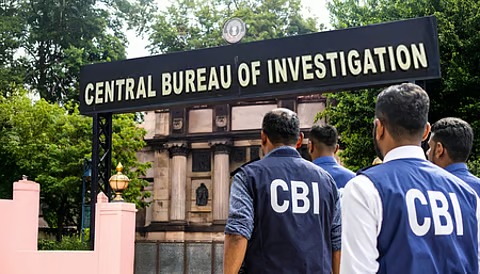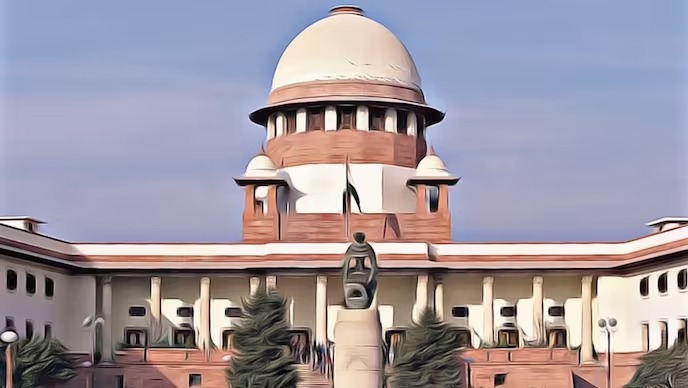Chainani, J.@mdashThis is a reference by the Addl. Ses-J., Sholapur, recommending, on an appln. made to him by one Mr. Prabhu, that his conviction u/s 112, Motor Vehicles Act, 1939, and the sentence passed upon him should be set aside.
2. The charge against the appct. was that on 11-8-1947, when he was serving as Police Inspector at Sholapur, he asked his orderly constable Yemnaji to drive his car from the Police Chowki to his bungalow. Yemnaji had no license. The appct. was, therefore, prosecuted for contravening the provisions of Section 5, Motor Vehicles Act, which provides that no owner or a person in charge of a motor vehicle shall cause or permit any person who does not possess a driving licence to drive the vehicle. The appct. pleaded not guilty to the charge. He denied that he asked Yemnaji to drive the car to his bungalow. He stated that Yemnaji had taken away the car on his own intiative without his knowledge. This defence was not accepted. The trying Mag. held that Yemnaji had driven the car under orders of the appct. He, therefore, convicted the appct. u/s 112, Motor Vehicles Act, & sentenced him to pay a fine of Rs. 30. The Addl. Ses-J. has now made a recommondation that the conviction of the appct. & the sentence passed upon him should be set aside, as the prosecution has not proved that the appct. knew that Yemnaji did not possess a driving licence.
3. Section 5, Motor Vehicles Act, provides that no owner of a motor vehicle shall "cause or permit" any person who does not possess a driving licence to drive the vehicle. This section corresponds to Section 6, Mobor Vehicles Act, 1914, & in that section the word "allow" was used for the words "cause or permit," which occur in the present section. In Emperor v. Shantaram 34 Bom. L. R. 897: AIR 1932 Bom. 474: 33 Cri. L. J. 746, it was held that in order to support a conviction u/s 6, Motor Vehicles Act, 1914, the prosecution must show either express permission of the owner or facts from which the Ct. can properly infer an implied permission. In his judgment Beaumont C. J. referred with approval to the decision of the Calcutta H. C. in
4. It has, however, been urged by Mr. Kotwal that it was also necessary for the prosecution to show that the appct. knew that Yemnaji did not have a driving licence. The knowledge that the person driving the vehicle did not possess a licence is not made a neces-sary ingredient of the offence punishable u/s 112 read with Section 5 of the Act. Section 5 does not require that the owner should know that the person whom he has permitted to drive his vehicle did not possess a licence. As soon as, therefore, the prosecution prove that the owner had permitted a person, who did not possess a licence, to drive his vehicle, the offence for contravening the provisions of Section 5 would be complete. This is also the view which has beer taken by the Madras H. C. in Crown Prosecu-tor v. Khadir Mohideen 51 Mad. 187: A. I. R. 1927 Mad. 1080 : 28 Cri. L. J. 962, in which ease it was observed that a man cannot entrust his car to another person & plead that he presumed that he had a licence & that he must assure himself that he had a licence. This decision of the Madras H. C. was cited with approval by Broomfield J. in Emperor v. Shantaram 34 Bom. L. R. 897 : A. I. R. 1932 Bom. 474 : 33 cri. L. J. 746. Mr. Kotwal has tried to distinguish these decisions on the ground that the word then used in the relevant section of the Motor Vehicles Act was "allow" & not the words "cause or permit" which are used in the present section. The word "allow" was interpreted in Emperor v. Shantaram 34 Bom. L. R. 897 : A. I. R. 1932 Bom. 474 : 33 Cri. L. J. 746, as meaning giving permission, express or implied. The change of language in the section has not, therfore, in our opinion, altered the law. In our opinion, therefore, it was not necessary for the prosecution to prove that the appct. knew that Yemnaji did not possess a licence. I may here also mention that the appct. in his statement did not say that he had no such knowledge.
5. The conviction of the appct. was, therefore, correct & we see no reason to set it aside. We, therefore, make no order on the reference.

